Intermodal Association of North America Honors Vincent Marino with Silver Kingpin Award
 August 19, 2020 – The Intermodal Association of North America (IANA) announced that Vincent J. Marino, President and CEO of the Marino Group, will be honored with the 2020 Silver Kingpin Award in an online presentation to be held Monday, September 14th. August 19, 2020 – The Intermodal Association of North America (IANA) announced that Vincent J. Marino, President and CEO of the Marino Group, will be honored with the 2020 Silver Kingpin Award in an online presentation to be held Monday, September 14th.
The Silver Kingpin, the industry’s most prestigious award, recognizes an individual’s long-term contributions to intermodalism. The award was initiated in 1977 by the National Piggyback Association.
Marino has spent his entire 46-year career in the intermodal industry. Under his leadership, the Marino Group, established in 1971 and headquartered in Charleston, South Carolina, has grown into a network of maintenance & repair and over-the-road repair companies. Other business areas include equipment modification/sales and depot services in the East Coast, Gulf & Midwest markets.
“Vince has been a champion of intermodal for many years,” said Joni Casey, President and CEO of IANA. “His contributions have been and continue to be focused on ensuring the safety and integrity of intermodal equipment. IANA appreciates Vince’s industry leadership and support.”
A native of Brooklyn, New York, Marino graduated from New York University with a B.S. in Business Administration. He is a past Chairman of the Maritime Association of South Carolina and served on the Board of Directors of the Charleston Metro Chamber of Commerce. He also currently serves on IANA’s Operations and Maintenance & Repair committees.
IANA’s roster of more than 1,000 corporate members includes railroads, ocean carriers, ports, intermodal truckers and over-the-road highway carriers, intermodal marketing and logistic companies, and suppliers to the industry.
SOURCE: Intermodal Association of North America |
|
|
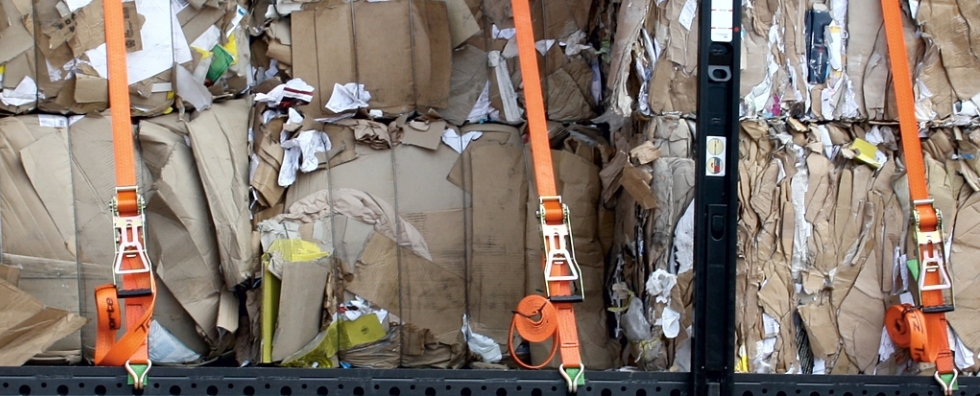
Global Shipping Companies End Recovered Paper Exports to China
By Tim Woods Managing Director of IndustryEdge (for Forest2Market's blog)
July 20, 2020 - Recovered paper shipments to China could cease before the end of 2020, with global shipping companies now rejecting shipments for delivery after the end of September. The second and fifth largest global shipping conglomerates (Mediterranean Shipping Company [MSC] and Hapag Lloyd) have announced separately that they will cease shipping recovered paper to China before the end of 2020.
The move by the shipping lines is in response to Chinese laws that were introduced in late April that move China much closer to its stated aim of ending recovered paper imports entirely by the end of 2020.
Key Points:
- Chinese officials have repeatedly signaled an end to imports of recovered paper
- In April, China tightened its solid waste management laws
- In late June, the Chinese Government announced it would ban the importation of solid waste from 2021
- Major shipping lines are getting ahead of any bans, reducing their potential liabilities
It appears that both companies plan to cease taking containers that would be delivered to China after the beginning of October, as part of a risk management strategy. IndustryEdge was recently advised by a client that other shipping companies are also conducting “consultations” on the future of recovered material shipping to China.
In the interim, China’s import permits continue to be metered out on a national needs basis, leaving exporters from countries like Australia and New Zealand uncertain about even short-term shipments.
Month-on-month permits are extremely volatile and expected to result in China’s total recovered paper imports declining to less than 5 million tons in 2020, down from a peak of around 28 million tons in 2017.
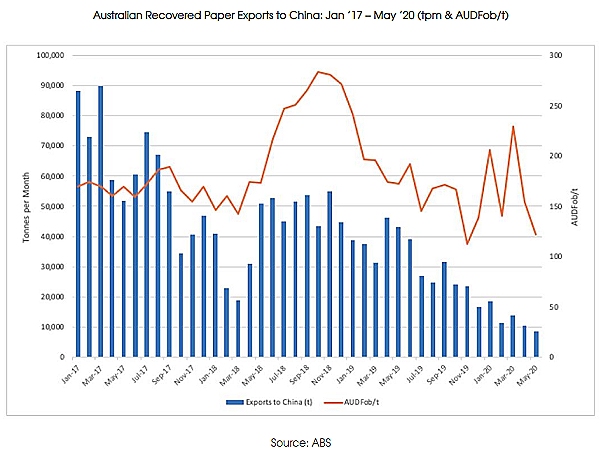
This development must be viewed alongside the other significant development in global fiber markets of the last two years: the rapid expansion in the number of mills producing recovered paper pulp for shipment to China. Mills have been converted and established in North America, Malaysia and Vietnam, most significantly.
The likelihood is that by year’s end, Australian suppliers will be seeking alternative markets to China in larger proportions than ever before. Over the year-ended May 2020, Australian recovered paper exports to China totaled 249.2 kt (valued at AUDM41.2), down 54 percent on the prior year. In fact, at just 8,579 tons in May 2020, Australia’s exports of recovered paper to China were their lowest in more than seven years, with average prices at AUDFob122/t, within range of the lowest monthly average price ever recorded.
Indonesia is the next most likely destination for Australia’s recovered fiber. Over the year-ended May 2020, Indonesia received 295.5 kt of Australian recovered paper (valued at AUDM52.8). However, Indonesia’s market is already close to capacity and is expected to be swamped with potential supply options, placing obvious pressure on prices. Indonesia has recently repositioned its recovered paper import quality requirements, and countries like Korea are in the process of doing the same.
One possibility under active consideration in some parts of the recovered paper sector is whether exports could be allowed into countries making recovered paper pulp that will ultimately be sent to China. That consideration alone is an indication that recovered paper pulping, for the international market, needs to be on the Australian infrastructure investment table right now.
About IndustryEdge
IndustryEdge is Australia and New Zealand’s dedicated provider of market intelligence, trade data and analysis in the paper, paper products, pulp and recovered paper sectors. For further information, visit: industryedge.com.au
Forest2Market provides pricing data, supply chain expertise and strategic consulting services to participants in the global wood and fiber supply chain. The Forest2Market's unique databases contain more than 400 million rows of transaction data; they are the foundation for all analytics available in the firm's business intelligence platform, SilvaStat360, as well as client resource studies and consulting engagements. To learn more, visit www.forest2market.com.
SOURCE: Forest2Market |
|
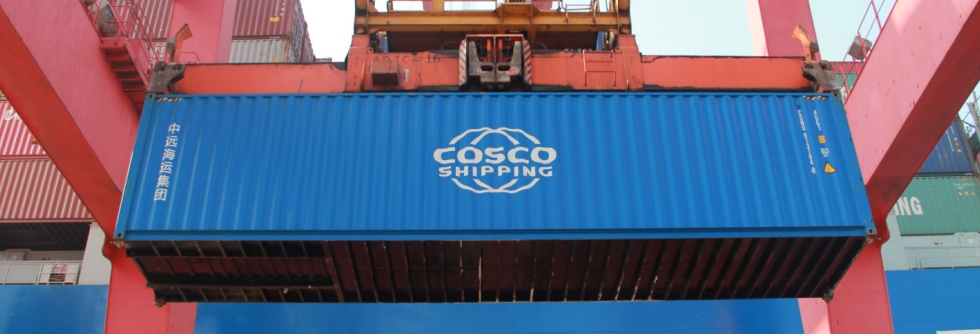
COSCO SHIPPING Lines Promotes Contactless Pickup of Imported Goods with Blockchain Technology
July 1, 2020 (Press Release) - Recently, in cooperation with Qingdao Port under Shandong Port Group, COSCO SHIPPING Lines launched a program of digital, contactless pickup of imported goods based on blockchain technology, bringing a new level of convenience to customers. So far, through paperless release of imported goods, the company has completed the release of 500 containers at Qingdao Port. On average, each container has saved nearly 24 hours of pick-up time for customers.
For this purpose, COSCO SHIPPING Lines and Qingdao Port have made adequate preparations. Previously, according to the requirements of carriers and ports, customers were required to prepare paper documents for picking up goods and complete pickup procedures at their respective service windows. Nowadays, with the help of traceable and trustworthy blockchain technology, carriers and ports have achieved data interconnection between systems and collaboration and mutual trust between processes. By doing so, customers who import goods can experience streamlined operation procedures of carriers and ports on the blockchain at once and pick up goods in a shorter amount of time.
Since the program was launched in November 2019, COSCO SHIPPING Lines has promoted it at a number of ports in China, and provided easy paperless pickup service for customers with sea waybills and telex release B/L. For the future, through technology-enabled innovations, the company will expand the practice to more ports and offer customers improved services.
About COSCO SHIPPING
The total fleet of COSCO SHIPPING comprises of 1330 vessels with a capacity of 107.10 million DWT, ranking No.1 in the world. Its container fleet capacity is 2.99 million TEU, ranking the third in the world. Its dry bulk fleet (446 vessels/42.78 million DWT), tanker fleet (206 vessels/26.30 million DWT) and general and specialized cargo fleet (148 vessels/4.25 million DWT) are all topping the world’s list.
SOURCE: COSCO SHIPPING |
|
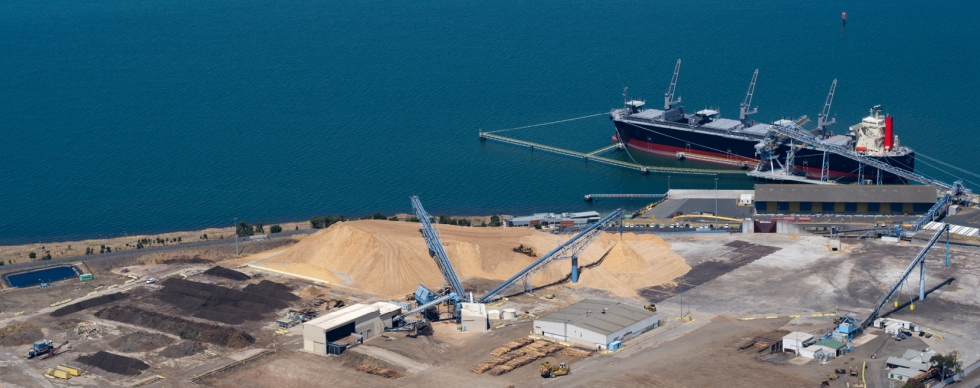
Annual Australian Woodchip Exports Down 21.3% Year-Ended April
By Tim Woods Managing Director of IndustryEdge (for Forest2Market's blog)
June 30, 2020 - Australia’s combined annual exports of hardwood and softwood woodchips for the twelve-months-ended April 2020 were recorded at 5.728 million bone dried metric tons (bdmt). Monthly export volumes began dropping around the middle of 2019 and have not been above the 500,000 bdmt mark since October 2019.
Hardwood chips make up the majority of Australian exports. Their annual volume fell 23.5% across the year to total 5.165 million bdmt, well below the 6 million bdmt per annum mark, and the lowest annual total since October 2015.
Always variable, total exports of softwood increased, albeit off a smaller base, up 7.8% compared to the prior 12 months, to total 562,335 bdmt for the year-ended April 2020.
The chart displays total woodchip exports on a monthly basis.
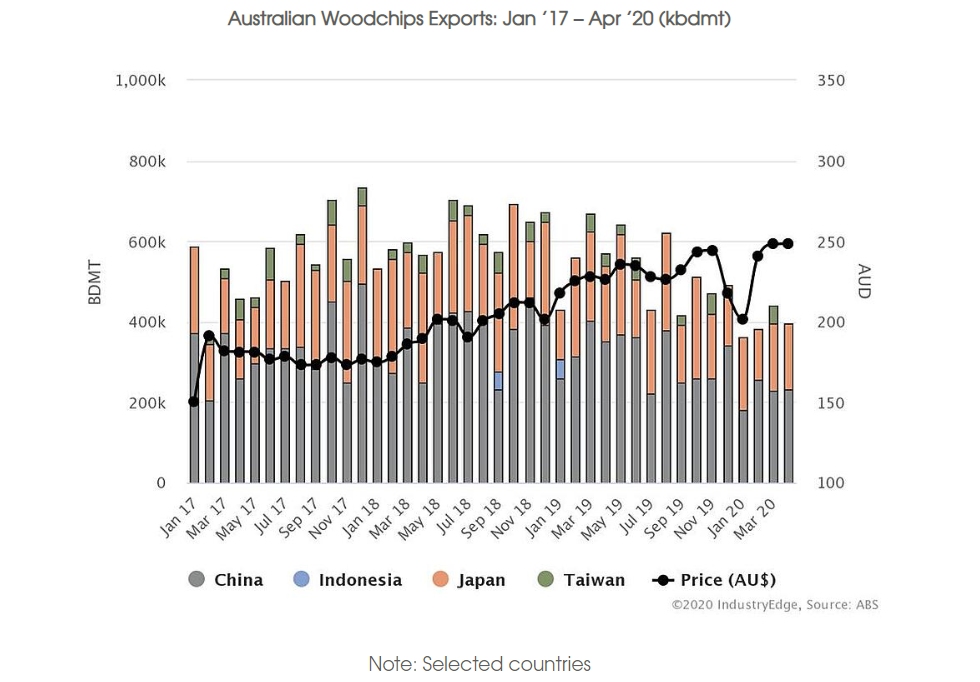
Examined month-on-month, April 2020 saw the monthly export volumes decrease again, after a small lift in March. Combined exports of Hardwood and Softwood were recorded at 397,335 bdmt in April, (367,092 bdmt Hardwood, 30,243 bdmt Softwood). This monthly total sits well below the 477,296 bdmt average monthly export volume for the 12-months to April.
Based on our monitoring of ship movements, we anticipate May’s export volumes will be 342,675 bdmt. We project June’s exports will fall to 217,971 bdmt.
As the latest edition of Wood Market Edge was being finalized, IndustryEdge’s vessel tracking observed only three vessels in transit to Australia and one in port, with 8 departures anticipated in June.
The slowdown is definitely on. The question is how long it will last.
For more detailed analyses of the Australasian wood market, including specific export data and price movements, visit IndustryEdge
SOURCE: Forest2Market |
Kuehne + Nagel Extends 2030 Net-Zero Carbon Goal to Include All Transport by Suppliers
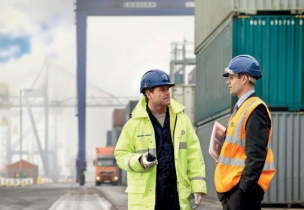 The Kuehne+Nagel Group has published its Sustainability Report 2019. The company sets out its performance in the areas of environment, social and governance (ESG). The report follows the structure of the Global Reporting Initiative as well as the 17 goals for sustainable development of the United Nations. The Kuehne+Nagel Group has published its Sustainability Report 2019. The company sets out its performance in the areas of environment, social and governance (ESG). The report follows the structure of the Global Reporting Initiative as well as the 17 goals for sustainable development of the United Nations.
Dr. Detlef Trefzger, CEO of Kuehne+Nagel International AG, says: "Sustainability is a social responsibility and is the duty of every individual. Following the successful completion of our environmental goals set ten years ago, we are now starting the next phase of our sustainability strategy. With our Net Zero Carbon programme, we are taking responsibility for sustainable logistics, hand in hand with our customers and partners".
The KN Green environmental programme initiated in 2010 was completed at the end of last year. All targets were reached or exceeded. Over the last ten years, Kuehne+Nagel was able to reduce the CO2 emissions of its own locations by an impressive 27%. The share of renewable energies in total electricity consumption was 18% and the recycling rate over the ten-year average was 77%. By the end of 2019, the area equipped with LED lighting technology corresponded to around 3.8 million sqm.
With Net Zero Carbon, Kuehne+Nagel has launched a sustainability programme for the next ten years. Kuehne+Nagel is playing a pioneering role in the logistics industry with this programme. By the end of 2020, the company's own CO2 emissions (Scopes 1 and 2 of the greenhouse gas protocol) will be neutral; by 2030, this will be extended to all transport by suppliers such as airlines, shipping lines and haulage companies (Scope 3). Net Zero Carbon leverages three fields of action: detection, reduction and compensation of CO2.
Kuehne+Nagel is a member of SXI Switzerland Sustainability 25, the most important sustainability index in Switzerland. In addition, the company was awarded the prestigious EcoVadis Gold status.
About Kuehne+Nagel
With over 83,000 employees at 1,400 locations in over 100 countries, the Kuehne + Nagel Group is one of the world's leading logistics companies. Its strong market position lies in Sea Logistics, Air Logistics, Road Logistics and Contract Logistics, with a clear focus on integrated logistics solutions.
SOURCE: Kuehne+Nagel
|
|
|